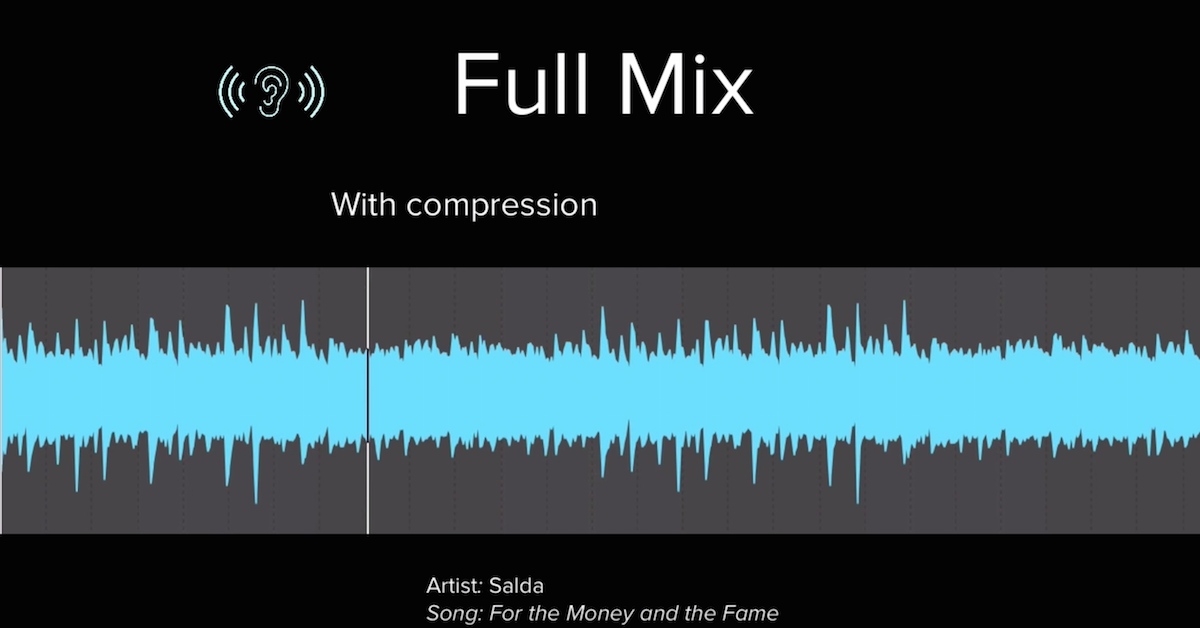6 Common Traps Aspiring Audio Engineers Fall Into
Article Content
You’re new to the field of audio engineering, full of hope, promise, potential and sunshine.
Six months later you’re sad and trying to share a cocktail with your only two friends: left speaker and right speaker.
Ok, that’s perhaps slightly melodramatic, but you get the point. You step into engineering thinking “how hard can it be?” and it turns out the answer is “really f’ing difficult.” Your mixes never seem to hold up, your clients are some kind of mix between human being, howler monkey, and lake algae… and you can’t seem to shake that pesky day job.
What on earth are you doing wrong? Here are some common traps (almost all of which I have personally walked into face first) that aspiring engineers fall into, both inside the mix and in career management.
In the Mix
1. Going Mix Overload
The purpose of a mix is to iron out the experience of the song. The purpose of a mix is not to do a whole bunch of stuff for the sake of doing stuff.
That seems really really obvious when you read it, right? But chances are if you are anything like I was, you have an EQ and a compressor and another EQ across every channel. Why? Well, you want to impress the client with all the cool stuff you’re doing (or possibly just impress yourself).
You want to have a signature sound and you want to be interviewed on Sound And Sound saying “well I did X, Y and cross pollinated that with Z to make an Omega Compressor EQ-Pump Effect™.”
But unfortunately your mix just doesn’t sound as good as some big name engineer. There must be some reason. Oh! You didn’t use multiband excitement on your snare! Add that too! Nope … still just doesn’t sound that good.
Vetted mix engineers do weird funky cool things in their mixes. But we do that stuff because we are screwing around, straight up. 9 times out of 10 if I’m doing something weird, quirky, or using a bunch of effects, it’s because I feel like screwing around and experimenting.
In reality very basic and minimal processing is what gets me where I really need to be mix-wise. Anything else I’m just having fun with very little exception.
This concept extends into…
2. Making Decisions Without Musical Consideration
Novice engineers are still trying to put together the whole concept of “sonics.” The thought is that there is some universal sonic correctness and you can get there by fitting frequencies together like some form of auditory jigsaw puzzle. But it don’t work that way. No it don’t.
Mixing is the facilitation of the production: it’s taking the music an artist is making and ensuring that it translates across the speakers the way it’s intended to. So before you go and put that EQ on that kick drum, ask yourself: Why? Why am I about to EQ this kick? If you can’t answer that question you need to take a step back from the mix for a second. And your answer to that question should always end in the phrase “… for this record.”
Example: The kick drum need less woof and more snap for this record.
Because in the next record you may find yourself saying this…
Example: The kick drum needs more low-mid punch and a rounder tone for this record.
EQ-wise you may find yourself literally doing the opposite moves in order to make the sonic quality of said kick work with the record.
3. Neglecting The Power Of Automation
If you really want to impress the client and show off your engineering prowess, do it with level automation.
Create contrast, keep the energy moving, find the compelling parts of words and phrases, bring out the element that takes the lead when the vocal isn’t it, add strength to down beats, allow parts of the song to be louder or softer than others, ride the reverb and delays up and down to where it’s most powerful.
There’s a world of level automation by itself and it all inherently revolves around paying attention to what the music is doing.
Outside the Mix
1. Not Focusing Resources On Monitoring
No matter how many times it’s been said — you can’t mix what you can’t hear! Let me reiterate that in hopes that it sinks in.
I don’t currently list gear on my website. I’ve thought about it, but right now, I don’t. I have about $30,000 worth of equipment in my personal studio, and a good portion of that is fancy-shmancy analog signal processing. So why don’t I list that stuff? Because: it doesn’t really matter.
What matters is what I do with that gear, i.e., the end results. The gear doesn’t matter. What matters is how I mix with that gear. An EQ at the end of the day does what an EQ does, and if I do the wrong thing with it, it doesn’t matter how good the EQ may be. I can’t mix what I can’t hear!
I’d rather make the right decisions with subpar gear than the wrong decisions with the best gear on the planet. If I have less than $5,000 to spend on a studio setup (not including computer), I’m spending as much on getting the monitoring to be the best it can, and using stock plugins to do the mixing.
Now mind you, this is if my focus is on mixing. If my focus is on production, then that changes the game — I need gear to actually make the music. But suffice to say the single most expensive piece of gear is the amp that powers my speakers, because I need that monitoring to be capital!
2. Underpricing and Under Representing Your Service
There is a monumental divide on the side of engineers that devalues the field. The first and most problematic is the “studio vet” that really shouldn’t be in the business at all, overpricing and over-representing their services. The problems with this could be a whole separate article, but I’m going to look at the other side of the coin: newer engineers devaluing themselves.
Just because you’re new doesn’t mean you aren’t valuable! I understand that’s easier to read than it is to digest. Because let’s be honest, engineering is super competitive, the music industry operates on razor thin budgets, and both clients and those “studio vets” I previously mentioned will both do their best to devalue you. Don’t believe it.
You have an extremely important role in this industry. To keep me on my toes. Just like my role is to keep the Andrew Dawsons, Chris Athens, and Dave Pensados on their toes. And to provide the newer artists with a resource to get their recordings together the way they need to be.
Now, the reason I mention the former is because of the shoestring effect. If an upper level guy is charging X, the next guy in the pecking order can charge just behind that. The biggest names set the upper standard. The newest greenest guys on the totem pole set the floor. And the value of our profession is the average between the ceiling and floor.
And never assume that because you are the newest that you are the least valuable. In truth, you are coming to the profession with life, energy, unprecedented ideas and no boundaries. Us aging old bags need to consciously practice retaining those qualities. So don’t undervalue yourself! Be conscious of where you can improve but also be conscious of where you rock.
3. Blaming The Artist
Sometimes you get a record that for the life of ya, you just can’t get right. It’s important not to blame the artist, the recording or the arrangement. Even if that’s where the issue lies.
As an engineer you will absolutely never stop running into difficult artists, crappy recordings, or slapdash arrangements. It’s part of the gig. And being able to handle those situations is part of what makes the top doggy engineers why they are who they are.
If any of those aspects of the song are to blame, try to work that out with careful suggestions about muting or adding elements, getting the artist to let go of the demo sound, re-track something, etc. If they say “no,” then take the burden upon yourself. Try to see things for how they work, not how they don’t work. If you’re thoughtful you can sometimes turn a shitty arrangement into something new and exciting, or an artists bat-shit crazy idea into bat-shit awesomesauce.
Always look to celebrate the recording, not bemoan its flaws. Especially because a large portion of the time it’s not the flaws themselves that are the issue — it’s our inability to deal with those flaws. And if we can conquer those obstacles, we become better engineers.





